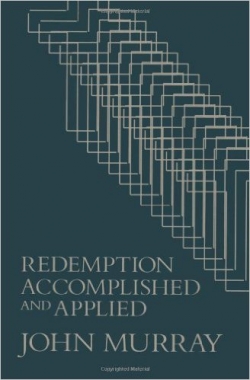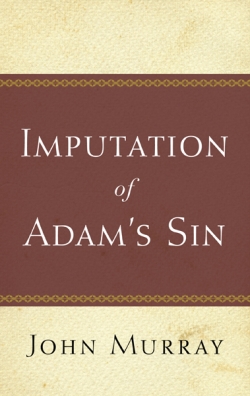Redemption Accomplished and Applied

Buy online ($)
Type
Book
Authors
ISBN 10
0802811434
ISBN 13
9780802811431
Category
Doctrine - Salvation
[ Browse Items ]
Publication Year
1955
Publisher
Pages
192
Subject
Modern classic on the atonement of Christ and how the Spirit applies to believers
Tags
Description
"Murray explores the biblical passages dealing with the necessity, nature, perfection, and extent of the atonement, and goes on to identify the distinct steps in the Bible's presentation of how the redemption accomplished by Christ is applied progressively to the life of the redeemed."
"John Murray was the systematic theology professor at Westminster Seminary for many years and as such, held one of the most high profile and influential academic positions within the ranks of reformed theology. This particular book was his attempt to succinctly outline the tenets of reformed soteriology, and it has become a standard text that multitudes of later pastors, teachers, and theologians have drawn from in their works.
The book is divided into two basic sections. The first section analyzes the accomplishment of the atonement. This is the section where Murray argues in favor of the most disputed point of the 5 points of Calvinism, 'limited atonement'. It is also the section where Murray puts forward the somewhat controversial doctrine of divine alienation, which says that the reconciling act of the atonement did much more to address God's holy alienation from us than it did to address our alienation from God.
This doctrine tends to go against modern views which say that reconciliation is purely an event where we become reconciled to God as soon as we exercise faith, and that's it. Murray takes exception to this by saying that alienation is not purely humanity's alienation from God, but also God's holy alienation from us as a result of our sin and that this holy alienation must also be addressed in order for genuine reconciliation to be possible.
Murray does a very good job of analyzing this area and might well be the most profitable part of the book from a purely theological perspective since this aspect of the atonement is rarely thought about or discussed.
The second section of the book is where Murray puts forth the classic reformed understanding of the ordo salutis. This is the section where Murray argues that monergistic regeneration precedes faith and makes a faith response on our part possible. This is one of the main aspects of reformed soteriology that is an affront to the anthropocentric soteriology held sacred by much of Christendom.
However, I happen to strongly agree with Murray here. His analysis of regeneration, justification, sanctification, and perseverance are all very good.
The one area where I thought the book lacked a bit was in Murray's exposition of limited atonement. I personally thought that this section could have been beefed up considerably, and it surprised me that Murray didn't make a bigger investment here in defending this doctrine, knowing full well that this doctrine is a source of intense controversy. For what Murray says, he does quite well. But there was much here that didn't get said, and a number of difficult Scripture passages that weren't really dealt with, and as a result, I think someone who wants to read an exhaustive defense of limited atonement will not be able to rely completely on this book.
However, I want to make clear that even though the limited atonement section is arguably a little thin, I do think that Murray makes a good case for limited atonement, while making very compelling cases for many of the other doctrines that he discusses in the book. Definitely an important read for Christians of all stripes and at all levels of Christian maturity. Very profitable for both the beginner and the seasoned believer."
Number of Copies
1
| Library | Accession No | Call No | Copy No | Edition | Location | Availability |
|---|---|---|---|---|---|---|
| Main | 146 | 1 | Yes |




